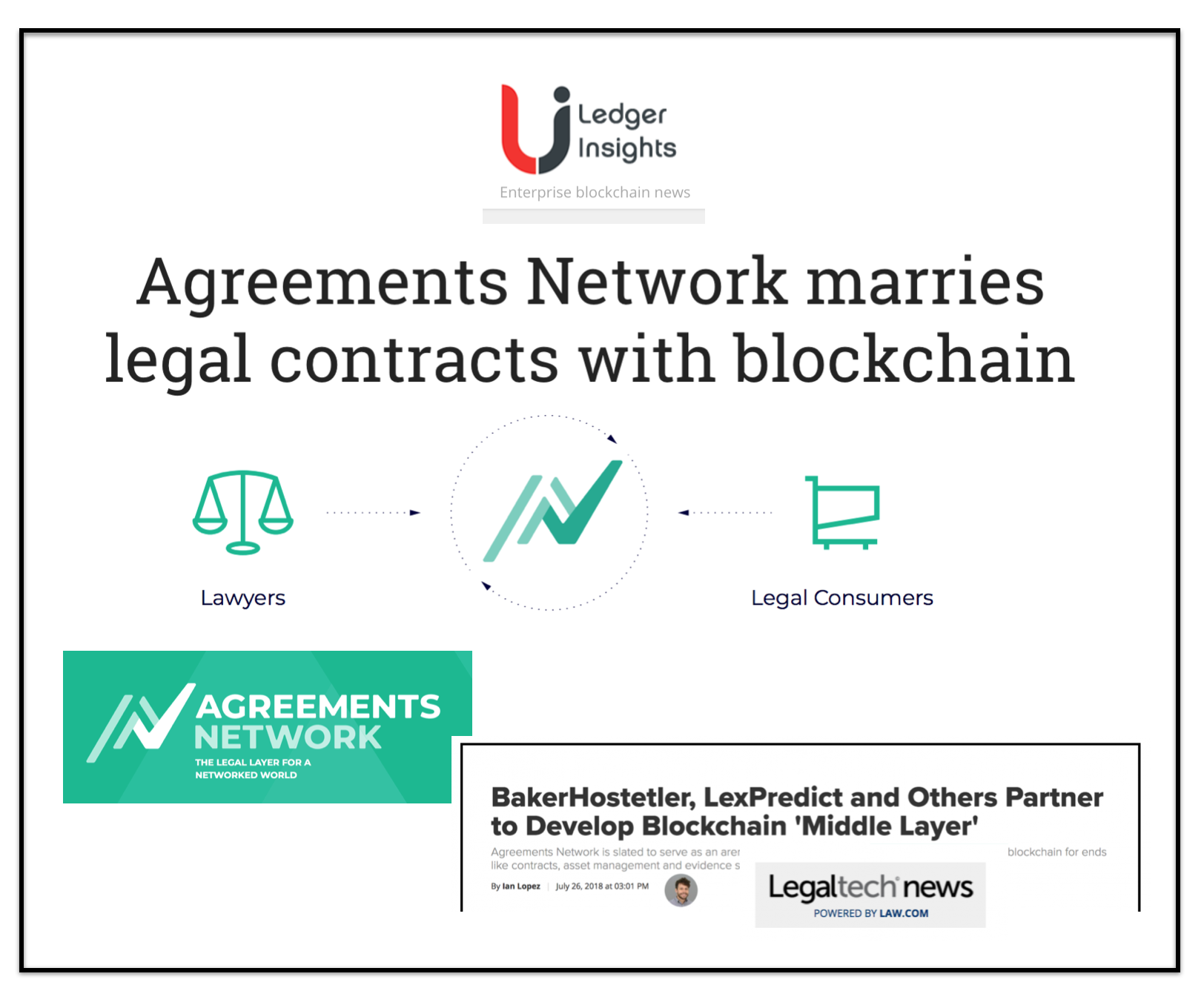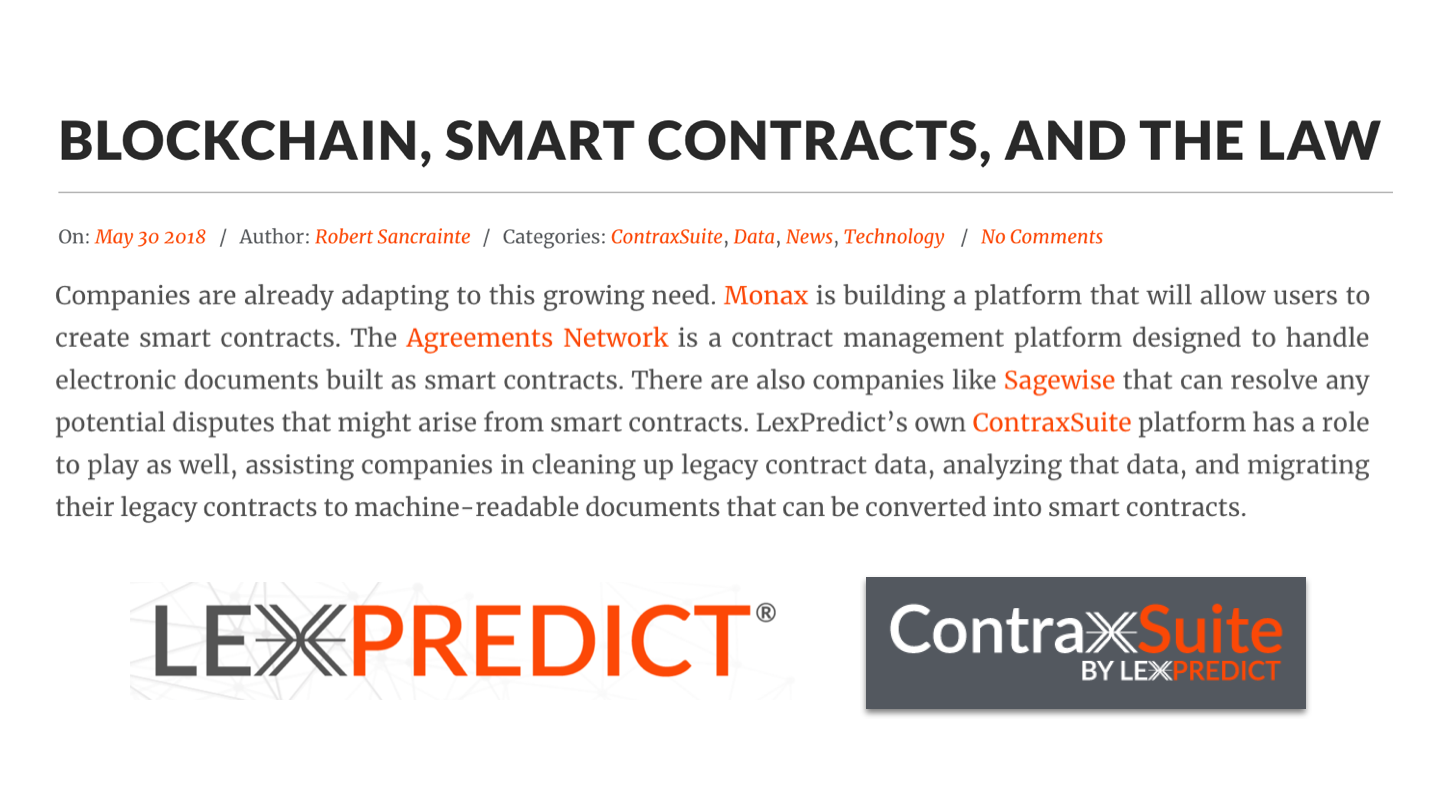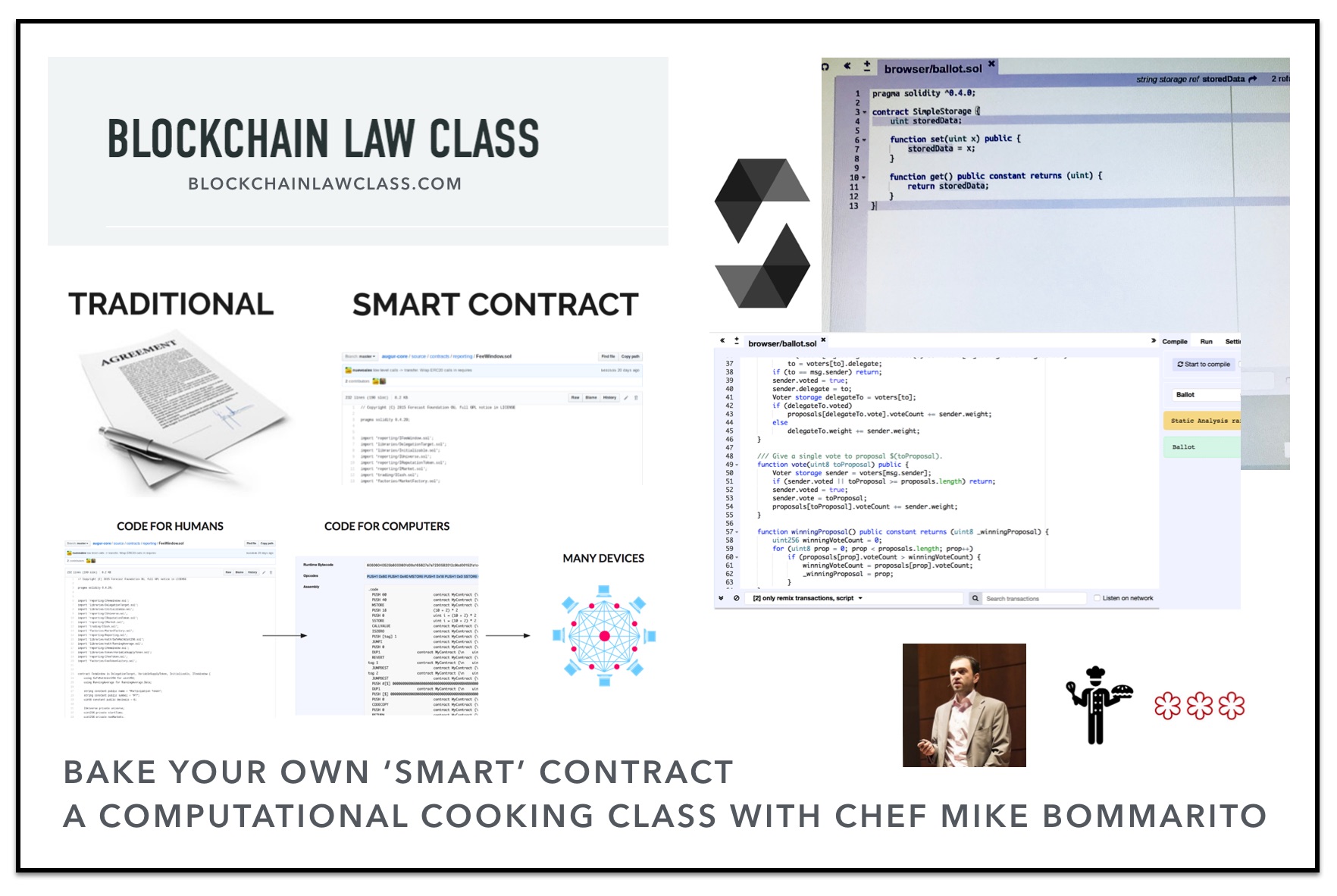
Cryptoassets and Smart Contracts are Valid in English law (via The Law Society Gazette)

Cryptoassets and Smart Contracts are Valid in English law (via The Law Society Gazette)

Tomorrow it is the Block (Legal) Tech Conference at Illinois Tech – Chicago Kent College of Law … nearly 600+ registered to attend (overflow room will be available) … 20+ Speakers on One Stage discussing all things {Crypto + Law} from CryptoInfrastructure to CryptoLawyering to the Regulation of Distributed Ledger Technologies …. blocklegaltech.com
Thanks as always to our Sponsors for supporting our conference!
#LegalInnovation #LegalTech #FinLegalTech #Crypto #Cryptoeconomy #CryptoLawyering #CryptoInfrastructure
 “Monax announced that eleven organizations are partnering with the Agreements Network (AN) which turns ‘legal processes into products’. The network enables people to create legally compliant agreements from templates with a few clicks.
“Monax announced that eleven organizations are partnering with the Agreements Network (AN) which turns ‘legal processes into products’. The network enables people to create legally compliant agreements from templates with a few clicks.
The project deserves attention because of the involvement of Monax which is known for contributing the code to Hyperledger Burrow.
The AN announced it’s working with law firms BakerHostetler, LegalBono and ErdosIP. Additionally, tech firm partners include Clause, Crowdcube, LexPredict, Libra, Mattereum, Monax, Rymedi, TransparentNode and Wolfram Blockchain Labs.”
SEE ALSO –
< See Press Release Here >
< Agreements.Network >
< Docs / Network Protocol >

The migration from analog to digital to computational contracts is the future arc for the entire field …. (most contracts are barely even digital today) … click here to link to post
 Today was our Smart Contract Cooking Class in BlockChainLawClass.com … thanks to Michael J Bommarito II for serving as our guest instructor!
Today was our Smart Contract Cooking Class in BlockChainLawClass.com … thanks to Michael J Bommarito II for serving as our guest instructor!
Blockchain, Crypto Infrastructure and the Transaction Cost View of Economic History — This is a course module available on BlockchainLawClass.com (check back for more over the coming weeks)
(Website is now live … still in beta … content to be added each week)
 We offer some initial conversation of the application of Blockchain to legal services in our deck called Fin(Legal)Tech. Obvious starting points for the blockchain in law include – real estate transactions, smart contracting, asset verification and the enforcement of judgements, financial services regulatory work (such as we have discussed in our paper on resolution planning), etc. These ideas (together with other related and important technological developments) extend to large segments of transactional / regulatory legal space. The goal is to reduce needless friction – which is endemic to most processes ( and legal centered processes are particularly bad).
We offer some initial conversation of the application of Blockchain to legal services in our deck called Fin(Legal)Tech. Obvious starting points for the blockchain in law include – real estate transactions, smart contracting, asset verification and the enforcement of judgements, financial services regulatory work (such as we have discussed in our paper on resolution planning), etc. These ideas (together with other related and important technological developments) extend to large segments of transactional / regulatory legal space. The goal is to reduce needless friction – which is endemic to most processes ( and legal centered processes are particularly bad).